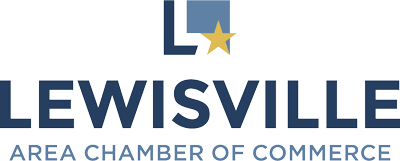SBA Economic Injury Disaster Loans Available to Texas Small Businesses
SACRAMENTO, Calif. January 4, 2024 – Small nonfarm businesses in the following counties are now eligible to apply for low‑interest federal disaster loans from the U.S. Small Business Administration. These loans offset economic losses because of reduced revenues caused by adverse weather conditions that occurred in the following primary counties in Texas, announced Associate Administrator Francisco Sánchez of the U.S. Small Business Administration’s Office of Disaster Recovery & Resilience.
Declaration Number: 20152
Primary Counties: Aransas, Eastland, Freestone, Grayson, Mills, Rockwall, San Patricio and San Saba.
Neighboring Counties: Anderson, Bee, Brown, Burnet, Calhoun, Callahan, Collin, Comanche, Cooke, Dallas, Denton, Erath, Fannin, Hamilton, Henderson, Hunt, Jim Wells, Kaufman, Lampasas, Leon, Limestone,
Live Oak, Llano, Mason, McCulloch, Navarro, Nueces, Palo Pinto, Refugio, Shackelford and Stephens in Texas; and Bryan, Marshall and Love in Oklahoma.
Incident Type: Excessive Heat
Incident Date: Beginning June 1, 2023 and continuing
Deadline: Sept. 3, 2024
Declaration Number: 20153
Primary Counties: Briscoe and Parmer
Neighboring Counties: Armstrong, Bailey, Castro, Deaf Smith, Donley, Floyd, Hall, Lamb, Motley and Swisher in Texas; and Curry in New Mexico
Incident Type: Excessive Heat, Drought and High Winds
Incident Date: Beginning June 1, 2023 and continuing
Deadline: Sept. 3, 2024
Declaration Number: 20154
Primary Counties: Childress and Robertson
Neighboring Counties: Brazos, Burleson, Collingsworth, Cottle, Falls, Hall, Hardeman, Leon, Limestone, Madison and Milam in Texas; and Harmon in Oklahoma
Incident Type: Excessive Heat and Drought
Incident Date: Beginning June 16, 2023 and continuing
Deadline: Sept. 3, 2024
“SBA eligibility covers both the economic impacts on businesses dependent on farmers and ranchers that have suffered agricultural production losses caused by the disasters and businesses directly impacted by the disasters,” Sánchez said.
Small nonfarm businesses, small agricultural cooperatives, small businesses engaged in aquaculture and most private nonprofit organizations of any size may qualify for Economic Injury Disaster Loans of up to $2 million to help meet financial obligations and operating expenses which could have been met had the disasters not occurred.
“Eligibility for these loans is based on the financial impact of the disasters only and not on any actual property damage. These loans have an interest rate as low as 4 percent for businesses and 2.375 percent for private nonprofit organizations, a maximum term of 30 years, and are available to small businesses and most private nonprofits without the financial ability to offset the adverse impact without hardship,” Sánchez said.
Interest does not begin to accrue until 12 months from the date of the initial disaster loan disbursement. SBA disaster loan repayment begins 12 months from the date of the first disbursement.
By law, SBA makes economic injury available when the U.S. Secretary of Agriculture designates an agricultural disaster. The Secretary declared these declarations on Jan. 2, 2024.
Businesses primarily engaged in farming or ranching are not eligible for SBA disaster assistance. Agricultural enterprises should contact the Farm Services Agency about the U.S. Department of Agriculture assistance made available by the Secretary’s declaration. However, nurseries are eligible for SBA disaster assistance in drought disasters.
Applicants may apply online and receive additional disaster assistance information at SBA.gov/disaster. Applicants may also call SBA’s Customer Service Center at (800) 659‑2955 or email disastercustomerservice@sba.gov for more information on SBA disaster assistance. For people who are deaf, hard of hearing, or have a speech disability, please dial 7-1-1 to access telecommunications relay services.
About the U.S. Small Business Administration
The U.S. Small Business Administration helps power the American dream of business ownership. As the only go-to resource and voice for small businesses backed by the strength of the federal government, the SBA empowers entrepreneurs and small business owners with the resources and support they need to start, grow, expand their businesses, or recover from a declared disaster. It delivers services through an extensive network of SBA field offices and partnerships with public and private organizations. To learn more, visit www.sba.gov.
